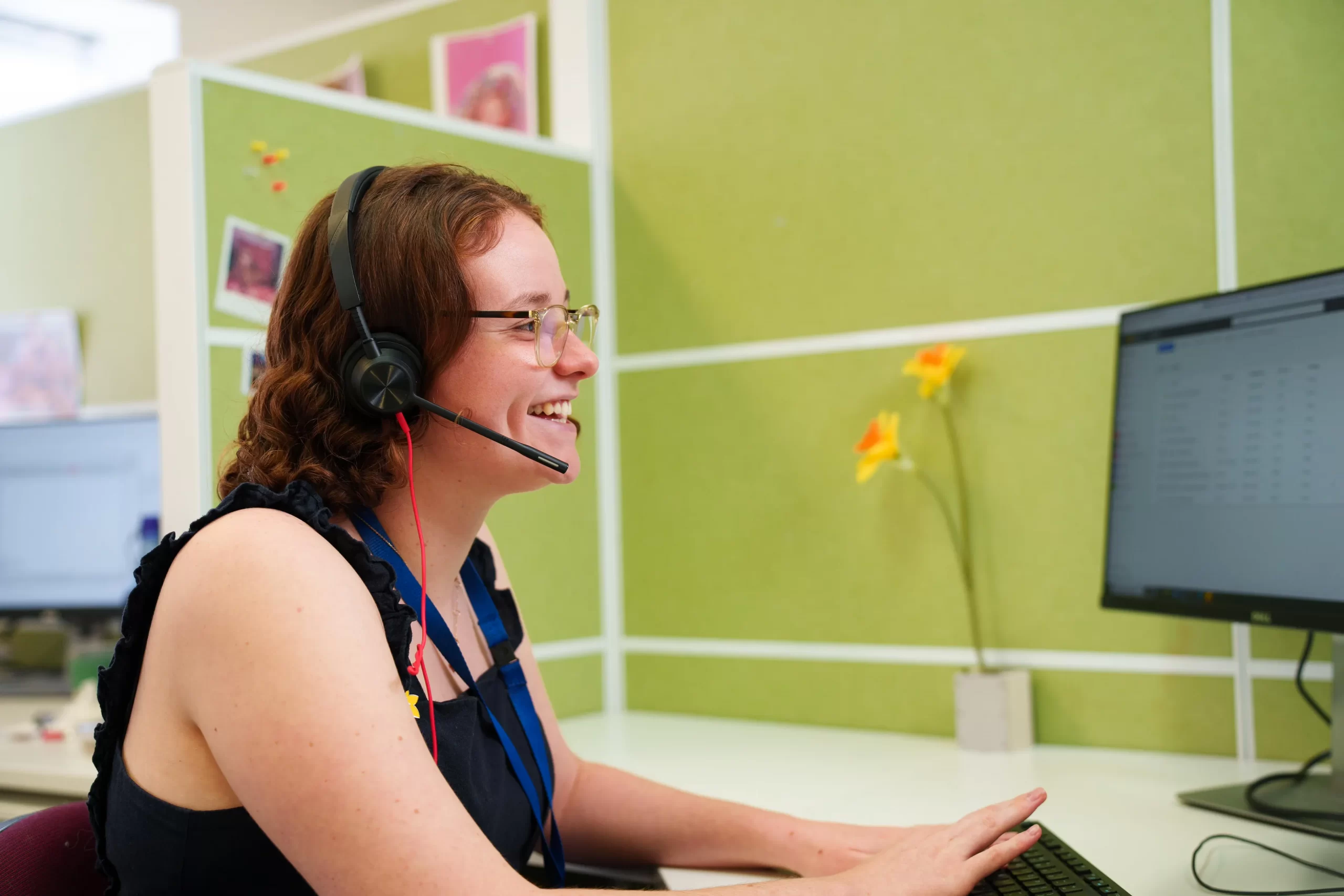BCSA’s innovative graduate research opportunities are suited to a wide range of disciplines. Queensland’s Katelyn Collins explains why she joined BCSA as a PhD student and what she hopes to accomplish.
Learn more about BCSA’s graduate research opportunities here
Why did you decide to undertake your PhD through the Bowel Cancer Screening Alliance?
I joined the Health Systems and Behavioural Research team at the Cancer Council Queensland in late 2022. As a Research Assistant, I was able to get a sense of what a research career is like, and I developed a real interest and passion for cancer screening research.
I officially commenced my PhD in April this year. I’m enrolled at the University of Southern Queensland, but currently an external student based full-time at Cancer Council Queensland. I feel incredibly lucky to have fallen into this research space that has such an applied focus and the ability to have a real-world impact on people affected by cancer.
What are you studying through your PhD?
My PhD research is all about understanding what makes interventions effective in increasing participation in bowel cancer screening tests.
Advance notification is a type of intervention strategy that’s already used in the National Bowel Cancer Screening Program. Invitees receive a letter before their screening invitation letting them know that the test kit is on the way. We know this strategy works, but right now, we don’t really know why. That’s what my thesis is about – helping uncover evidence-based mechanisms of advance notification, so we can use that knowledge to help build new and improved interventions to increase rates of participation in the NBCSP.
How are you supported in your PhD?
I am hugely supported by my supervisory team: Associate Professor Belinda Goodwin, Dr Larry Myers, and Dr Michael Ireland. Being based at the Cancer Council Queensland, I’m also privileged enough to be surrounded by a team of researchers, many of whom are (like myself) ‘early career’, who have a wealth of knowledge and experience to share. I’m also supported by members of the Bowel Cancer Screening Alliance, who have been able to provide critical feedback on my research, such as attending my confirmation seminar.
What are you enjoying and learning?
I’ve really enjoyed the opportunity to grow as an early career researcher and develop my skills in just about every way. My PhD has seen me take leadership of research projects and experience firsthand the level of creativity and persistence it takes to make a real scientific contribution. I feel incredibly lucky to be surrounded by such a dedicated team of researchers – their breadth of experience has allowed me to upskill in areas I had little prior experience e.g. coding and advanced data analysis methods, and qualitative research methodology.
What are the challenges?
I think the overwhelm of being in the driver’s seat of the research process is a very real part of taking on higher degree research. It can be challenging to find where to start, especially in the early stages of a review where you’re taking on a huge body of literature. I found that leaning on the support of my co-workers and supervisory team was essential in managing this, as well as being comfortable with continual revisions and changes. Part of the research process is seeing your work take shape, and it often looks very different at the end than it did at the start.
What do you hope your research will contribute to the field of bowel cancer screening?
I hope my research can provide us with some further insight into the processes that encourage individuals to screen for bowel cancer, and how these processes can be leveraged by scalable intervention strategies to encourage more people to take advantage of our world class program in Australia.

